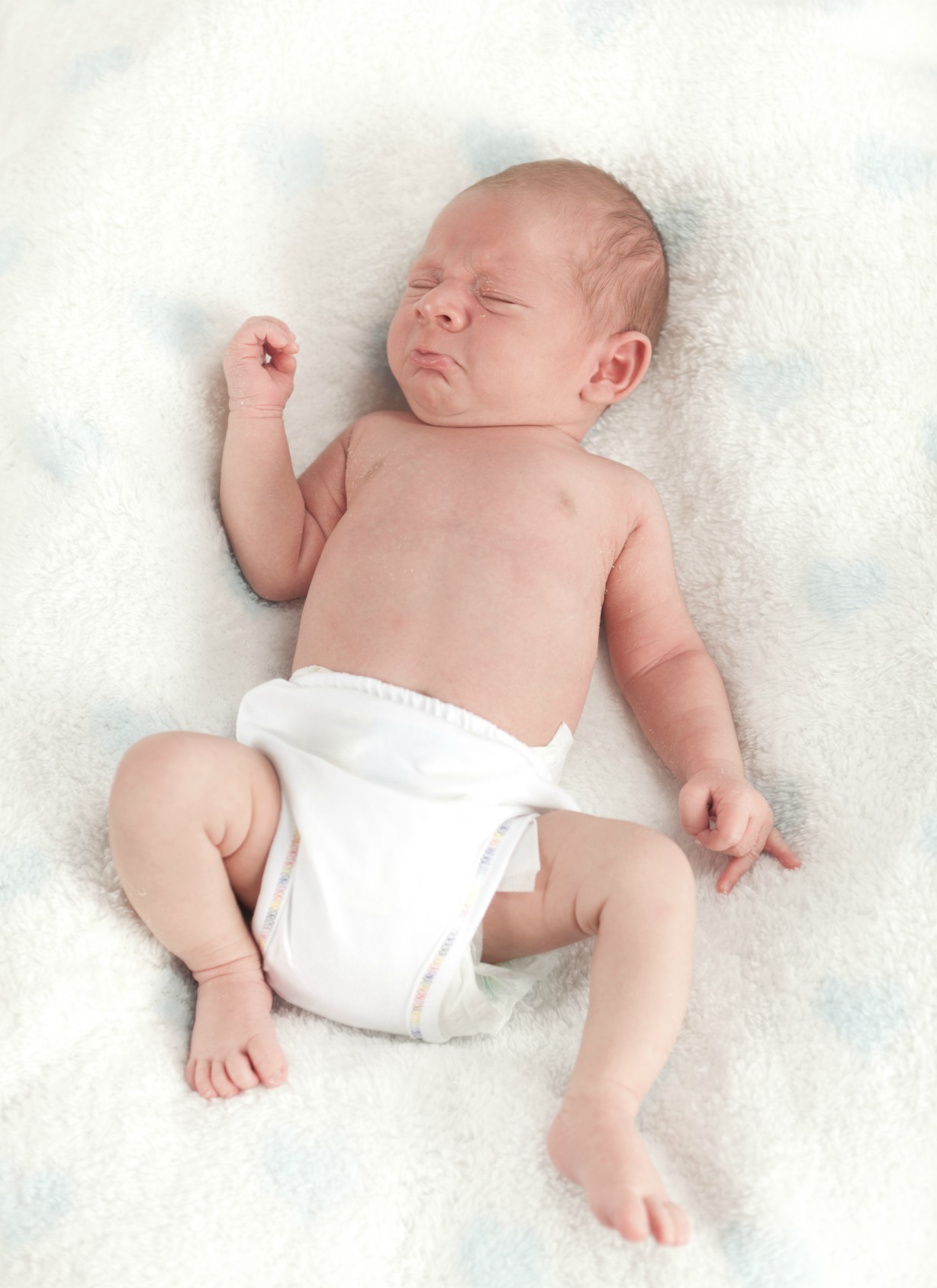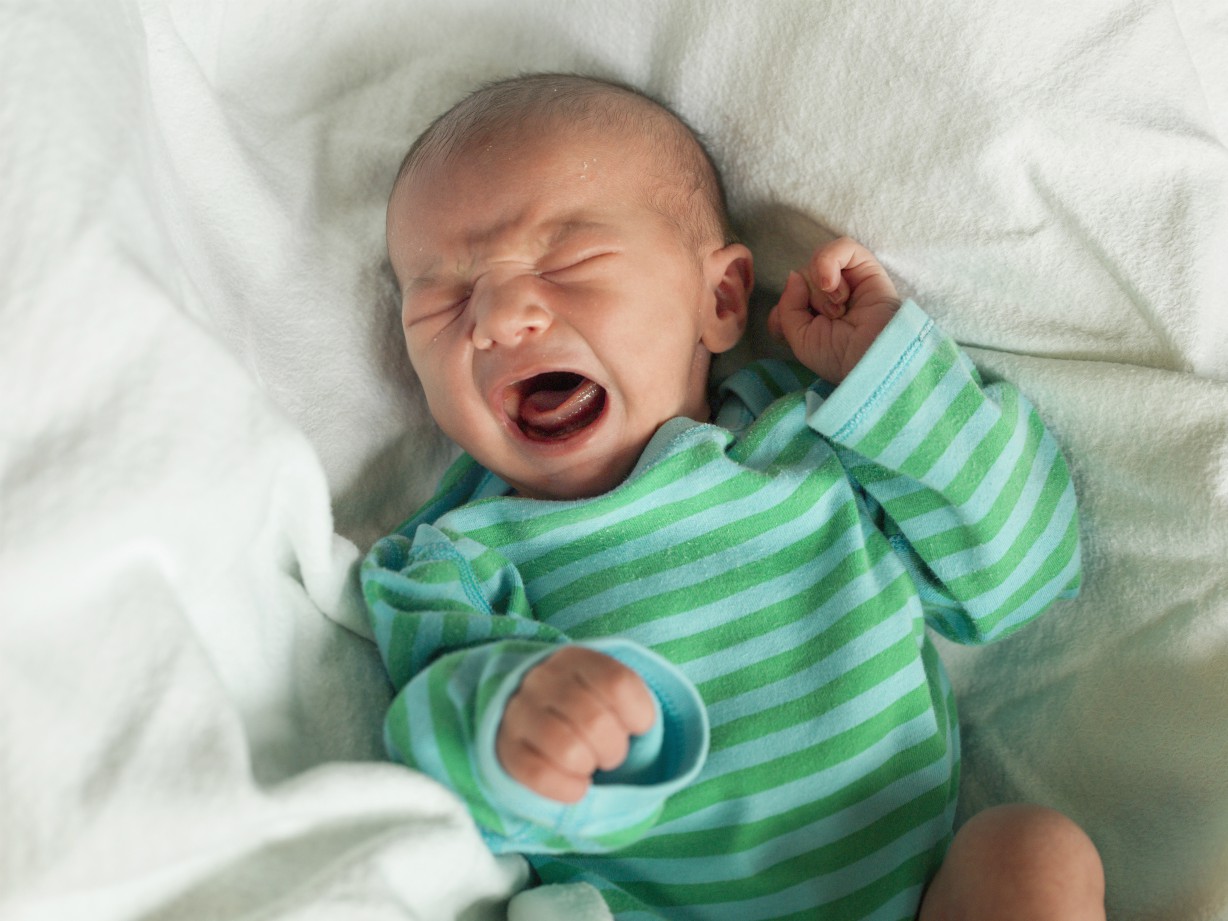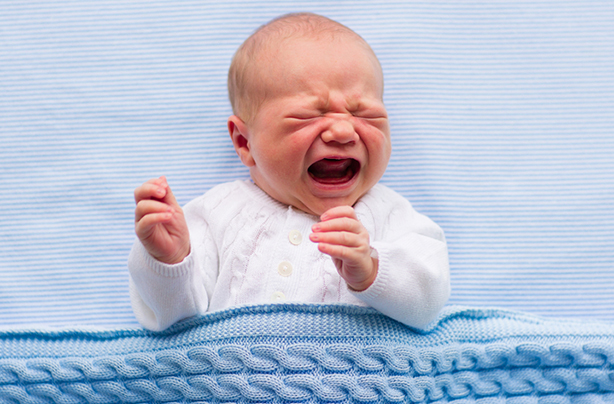Why is my baby crying? And how to help soothe them
Worried your little one won't stop crying? Work out why they're upset and what you can do to help them with our guide...

Why is my baby crying? This is a question mothers will ask constantly - here are a few tips and tricks to try when the crying just won't stop.
Why is my baby crying? We're sorry to say that there's no 'one size fits all' answer to this desperate question. A baby can be crying for so many different reasons.
Babies can't talk, so they cry instead, your baby cries because they need something. Now is time to turn detective and work out what your baby is telling you, then act on their 'instructions.'
Sounds easy? Try telling that to a sleep-deprived parent who has been pacing the floor with their newborn since 3am.
Spoiler alert: Their response is likely to rhyme with Muck Moo. Instead, share this guide. It may make life with a new baby that little easier...
Why is my baby crying?...
They're hungry
Hunger is one of the most likely reasons. So when you ask why is my baby crying bear that in mind, particularly when they're newborn.
Babies have very small stomachs - the size of a cherry pip - and can't hold much milk. Because of this they get hungry very quickly. Try breastfeeding or bottle feeding them frequently, even if their last feed didn't seem that long ago.
GoodtoKnow Newsletter
Parenting advice, hot topics, best buys and family finance tips delivered straight to your inbox.
With formula milk, babies tend to need to feed less, with up to two hours in between feeds. If your baby doesn't finish their feed, they may benefit from drinking less milk more often.
They're uncomfortable
If they're definitely not hungry, think practical. Babies often complain because they feel uncomfortable.
Wet or dirty nappies bother some a lot more than others. It's always worth checking whether they need to be changed.

Also make sure their sleep suit fits properly, and always check their toes in case any lose thread has come loose causing a 'toe tourniquet' their bedding is comfortable and your baby's not too hot or too cold.
The temperature in their bedroom should be around 18°C (65°F). This may all sound obvious, but it's easy to forget these simple things when you're feeling stressed.
They're tired
If your baby's tired they should just go to sleep, right? Wrong.
They would if they could, but young babies often need a bit of extra help getting off to sleep. Rock baby, stroke them and sing softly to help calm them down.
If none of that works there are some brilliant baby sleep tricks out there which you can try.
They're overtired
Young babies can't handle too much stimulation. So instead of asking your long line of visitors why is my baby crying, try cancelling them altogether.
Lots of visitors or a very busy day can unsettle baby and make your them extremely tired. But this doesn't mean they'll recuperate by sleeping for eight hours.

They're more likely to do the opposite and keep you awake all night. Try swaddling them in a breathable sheet or blanket to make them feel safe and secure. (Young babies usually love being swaddled, it reminds them of being in the womb.)
But if you want a peaceful life, the best solution is to limit visitors and activities in the early days of your baby's life.
They're too cold or too hot
The best way to check your baby's temperature is to feel their tummy, as their hands or feet may be colder than the rest of their body.
You can use sheets or cellular blankets in their cot or Moses basket if their tummy feels cold, or take away a blanket if they feel hot. The ideal temperature for their room is 18C, although it might be difficult to maintain this temperature all the time so don't worry too much.

The best position for baby to sleep is on their back, with their feet at the foot of the bed so they can't shift downwards too far under the blankets, making them overly hot.
Also, don't dress your baby in too many layers - the general rule is to put only one more layer of clothing on them than how many you have on, so two layers on them if you have one on.
They have colic
If you are a parent on the edge, screaming why is my baby crying, then it could be colic.
It's the five letter word that sends a shiver up the spine of even the most hardy, fearless parent - which isn't surprising. A baby with colic will cry and cry and cry, and no matter what you do, you can't seem to comfort them.
The crying often starts in the early evening when you're tired and desperate to unwind, and continues for several hours until you're too exhausted to care.
And to stop the screaming you will find yourself doing the most bizarre things. From practising 'the colic dance' (a weird series of steps and sways designed to soothe baby), to pacing, feeding them anti-colic drops, using the washing machine for white noise (note: the spin cycle works best), massaging their tummy - and if all else fails - bundling them into the car seat and going for a drive.

Nobody really knows the cause of colic - though an immature digestive system, slow bowel movements, swallowing too much air, or drinking cows milk are all popular theories.
But we do know that a lot of babies get it (around one in five) and it does eventually ease, usually at around three months.
So get through these difficult weeks as best you can by doing any or all of the above. And remember, thousands of other parents will be doing exactly the same.
My baby isn't hungry or tired, they're comfortable and clean and don't have colic - so why is my baby crying?
They're bored or lonely Even young babies need company or playthings. You don't have to spend a fortune on toys, a simple mobile, a rattle or even a wooden spoon could fascinate them for ages.
Or sit them in a baby seat and let your baby watch you and talk to you. Chat to them and let them babble back. Remember you're the best playmate they'll ever have.
They want you to hold them Babies are very tactile little beings, and need cuddles. They also like to see their parents' faces and hear their voices, even listen to their heartbeats. As heartbreaking as it is, a cry can be their way of asking to be held close.
And yes, there may be a niggling thought that you are 'spoiling' your baby by holding him too much. But during the first few months of life that just isn't possible. And if your arms ache, try a front carrier or sling.

They're ill If your baby is ill, their cry could be more high-pitched than usual. If you're worried, see your GP or midwife.
Act quickly if their cry sounds urgent and is also accompanied by vomiting, runny nappies, a temperature, a rash, or difficulty breathing.
Remember
- All babies cry, no matter what their parents say. Even the most laid back, angelic newborn will exercise their lungs for at least one hour every day, usually a lot, lot more. Anyone who tells you otherwise is lying.
- Listening to your baby cry can turn even the toughest, hard-nosed woman into a sobbing, demented wreck. A newborn's cry is designed to produce a hormonal 'surge' in her mother, making her feel anxious and compelling her to 'do something.'
- If you're close to despair, put baby down in their cot where they're safe and take a 10 minute break. Call a friend or relative, or contact Cry-sis, a support group for anyone finding it hard to cope with a crying baby, on 08451 228 669
Trusted, informative, and empathetic – GoodToKnow is the ultimate online destination for parents. At GoodtoKnow, our mission is 'simple': we're trying to make sense of parenthood. On the site, you'll find everything you need for a happy, healthy family life. Our huge archive of content includes more than 18,000 articles and 1,500 how-to videos. These include expert-backed advice features on parenting, dealing with relationship changes after having a baby, self-care for mums and managing your family finances. We also feature tried-and-tested product reviews and buying recommendations for every stage of family life - from prams and Moses baskets to birthday gifts and top toys.